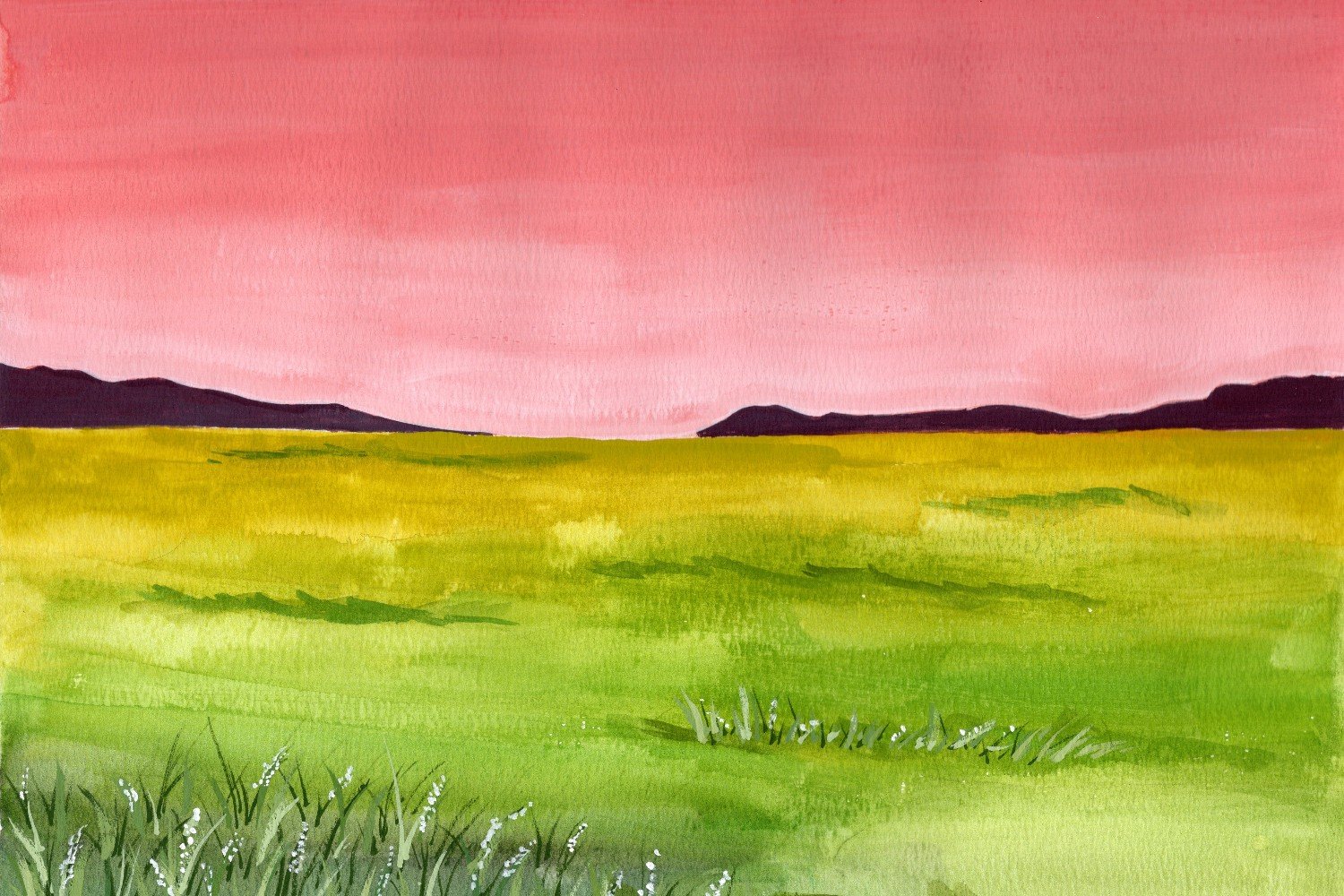Why creating your own path can feel awful
“The forest” — created with Midjourney AI
Why did something I wanted so badly feel so terrible?
When I returned to writing a few years ago, I dreamed of creating work more aligned with who I am and making money doing it. Looking back, I had a lot of innocence about what it would be like.
I took courses, learned about online marketing and blog writing, and tried to emulate similar businesses. I thought it would work out if I just did the "right" things and followed what worked for others. But I experienced incredible anxiety, self-doubt, and self-criticism from the start. I would feel so much fear when thinking about writing that I'd play video games instead -- anything to avoid that.
Little did I know, I had more to learn about the ways I approached learning and motivation that were no longer working.
How we were trained
Our conditioning is so ingrained that we don't realize it exists -- like fish trying to understand water. Until it stops working.
One of my problems was being too good at school.
I remember a classroom exercise in sixth grade on following directions. My teacher passed out a sheet with a bunch of instructions, and we were supposed to follow them one by one. They included silly activities like "mimic the call of your favorite animal," so we would hear our classmates call out every so often as they got to a particular instruction.
But there was a trick. The first line asked us to read through the entire list before following any instructions, and the last line said not to do any of it--just sit quietly and try not to laugh.
It was funny to watch as my classmates called out hilarious things. Then, at the end of the exercise, my teacher had everyone who did it correctly stand up and congratulated us. I was quite proud of that.
School taught me that success comes from meeting other people's expectations. There were curriculums you had to follow, classes to attend, and exams to pass, and the only real questions were how well you adhered to this path. If you got the correct answers and followed directions, you got validation and praise from teachers and the adults around you. If you didn't, you were punished and shamed.
It's not that I didn't enjoy school. I loved it. I excelled at learning and aced most subjects without difficulty, so it worked for me. But being a "good" student had unforeseen side effects later in life.
By having a curriculum laid out for me, I never learned to experiment and learn from trial and error. I never had to invest time into something without knowing the results. Because I was motivated to please my parents and teachers and fulfill their expectations, I never learned to put effort into projects for my own fulfillment.
This way of learning taught me to walk paths somebody else had laid out--whether it's the academic system, a career ladder, the needs of a company, or a business guru teaching their methods. I had become a great follower.
That may have been fine, except working for others felt increasingly stifling and depressing. At a certain point, I saw that what I needed wasn't going to come from a "dream job," which would always be subject to someone else's ideals and whims, but from designing and defining my work.
But just because I chose to create my path didn't mean I could escape the conditioning of compliance and external validation so easily. Our conditioning is so ingrained that we don't realize it exists--like fish trying to understand water. Until it stops working.
The chaos of creativity
We expect consistency and certainty from a process that cannot provide it.
Even if you don't think of yourself as a creative person, creating your own path is an intense act of creation.
This path is not well-paved with clear road signs. There is no curriculum, no grades to tell you how well you're doing. Instead, it's a journey of trial and error and self-discovery.
You have to clear it by hacking away the underbrush -- the obstacles in the way. You have to be comfortable investing time in a direction and making adjustments when it's not working. Finding your way can amplify your challenges because your path will reflect you. You have to learn to motivate yourself rather than be motivated by others. Meanwhile, there are no guarantees that your efforts will bring monetary success.
But none of this is actually a problem.
These experiences are natural parts of the learning process, but we're not used to them because we were rarely encouraged to experiment in our formative years.
On a creative journey, particularly one tied to work, this conditioning becomes a problem because we expect consistency and certainty from a process that cannot provide it. Consistency and certainty are needed to ensure we can make a living, but a creative journey requires experimentation, which can't guarantee these things.
This is why creatives often need to keep a "day job" that pays the bills and gives us room to experiment without burdening our creations too early with the pressure to make money.
Even when emotional well-being is our priority, we can get caught up in the belief that money is the point of this work.
But even after recognizing these tendencies, they're not easy to let go of. In the United States, we believe our work defines who we are -- it's not just how we make a living. When we meet people, we ask them what they do and mentally put them in the box that is our perception of that profession. So I've felt deeply insecure about my position as a writer who doesn't make money from writing and an accountant who doesn't want to be one anymore.
From the point of view of making money from my creative work, my life seemed like it wasn't going anywhere. I've been thinking about and working on writing for five years now. I tried turning it into a business starting about a year ago and still don't have much to "show for it."
Even when emotional well-being is our priority, we can get caught up in the belief that money is the point of this work. That if we overcame our internal challenges, meditated enough, walked our own path, money would flow easily, proving that all of this work was "worth it."
Conversely, if the money doesn't show up, we conclude that we must still be doing something wrong. Then come the doubts, shame, and self-condemnation.
The beauty in the mess
How often do we achieve something significant on an emotional level but dismiss our growth because there is more to be done, because we haven't "made it" by society’s standards?
Sometimes, what appears chaotic and messy can be suddenly beautiful with a simple change in perspective.
I love the work I did last year to let go of the artificial pressures of social media and blog posting schedules. I gave myself permission to stop doing what other people told me I should be doing to grow my audience and instead tried to figure out my own patterns and preferences. Because what's the point of working for myself if I'm going to be a toxic boss?
I learned to calm the inner voices that tell me I'm not doing it right by practicing encouragement, kindness, and acceptance for myself. I focused on my strengths instead of constantly comparing myself to people who seemed better than me. Of course, there were ups and downs, but I came out much more at peace.
But when I looked back at last year, I felt bad at first because my successes were not concrete steps toward business building.
This time, I didn't fall for it. It seemed ridiculous to measure all that growth by how much money I made or how much progress I made toward my money-making potential.
How often do we achieve something significant on an emotional level but dismiss our growth because there is more to be done, because we haven't "made it" by society’s standards, or because we haven't gotten the thing we were hoping to get (success, relationships, whatever)?
We've been taught to use money as our benchmark to measure not only our purchasing power but our worthiness as human beings. But there's more to life than making money; beyond having enough to live on, more of it doesn't make us happier.
Using money as a benchmark for worthiness when money is not our priority is like entering the wrong destination into our navigation system. Imagine having a GPS in your mind constantly blaring "recalculating!" when you know where you're headed.
After recognizing this truth, I saw that my shame about not making much money was a useless lie. My path had always been about experimentation and self-understanding, and I've been going exactly where I intended.
Adopting a kinder self-definition
How we define ourselves affects everything we do and drives us in unconscious ways. School conditions us to follow directions and to prioritize career paths that often feel stifling and dehumanizing. Under a capitalistic culture, we also constantly define ourselves by how much money we make, regardless of our growth on other levels.
The truth is we each have a different path to walk depending on our personalities, preferences, and limitations. As a culture, we are moving away from expecting conformity toward celebrating our uniqueness.
So I'm choosing to define myself in a way that feels good and embraces my uniqueness rather than finding fault in who I am. After all, nobody else lives in my headspace except me.
Thanks for reading! Did my story trigger any thoughts about your own experiences? Let me know down below.
Wanna receive my free resource list for anxiety and self-acceptance? Scroll down to sign up for my newsletter!






























